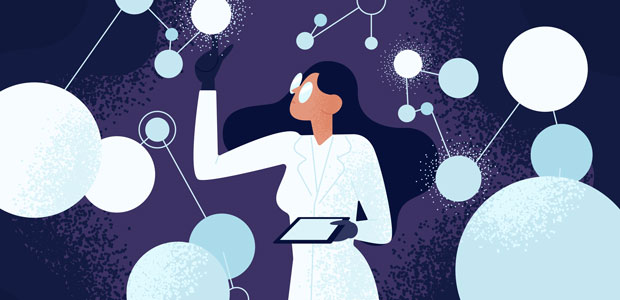
AI is no match for human kindness, but it can certainly bring it to life
The debate around the future of Artificial Intelligence (AI) and what it means for humanity is very much alive. It probably has been since 1927, the year Metropolis was released. If you haven’t seen it, the film stars a humanoid robot intent on world domination and human slavery. As you can imagine the robot doesn’t go down too well, and so began our difficult and ever-evolving relationship with AI.
The conversations we are having in the industry now aren’t on those levels of fantasy. In fact, we’re seeing everyday applications of AI crop up across all areas of our lives. The experts are now arguing the real life implications; how AI will impact the job market, how AI technology can protect us and help us communicate and whether new applications are moral, safe, trustworthy and in any way - a substitute for human intervention.
A lot of people say: AI can never replace the human heart, the human touch or the power of human connection. I agree, of course it can’t and neither would we want it to. But harnessed in the right way it can bring a new energy to our endeavours as a society and supercharge human kindness.
For charities, third-sector organisations and social impact movements which depend on stripped resources, small teams and tight-knit communities, AI is a game changer and can only stand to do good. In some cases, it's already doing great things.
Offering support at the right time
Within charities we’ve already seen the use of AI-powered chatbots similar to those we’re all familiar with using in a customer service setting. For charities, tools like these can reduce costs significantly - freeing up funds to go and do more good in the world.
In the charity context, chatbots can be tailored to provide the right advice and support in line with the user’s stated preferences and problems. We’re not talking about the generic messages you get from your mobile phone provider. Having the correct advice at your fingertips saves time and energy with the plethora of sources available online.
Leading this crusade - Versus Arthritis - a charity supporting the 17.8 million patients who suffer with MSK conditions in the UK has deployed their Arthritis Virtual Assistant to support their community. The AI function enables questions around pain relief and self help to be answered immediately with trusted information, 24/7. Through an exploratory piece of work, my own team at Razor is currently helping Versus Arthritis do more with their AI offering to help the organisation stay at the cutting edge.
Making the community open to everyone, everywhere
A step beyond site-specific chatbots are conversational assistants. In your home, this is Amazon’s Alexa or Google Home. On your phone, it's Siri. Love them or hate them, they provide an invaluable resource to groups which may find it hard to interact with technology. The technology is terrific for users who live with visual impairments or others with a physical difference. Voice assistants also mirror face-to-face chats which makes the whole experience more intuitive.
AI language translation is another important area for growth. Until now these have been no match for human translation but new AI-based translation tools are beginning to stack up with powerful speech recognition and natural language-processing algorithms. Incredibly, these products are achieving accurate, real time translations.
The Children’s Society reported in 2017 that it was using Microsoft’s Translator app to interact with refugee and young migrants. Practically this reduced costs but charity workers shared that in some cases the app had eased interaction. Young people were more comfortable talking about sensitive and difficult issues without an unfamiliar third party - like a translator - in the room.
Enabling scientific breakthroughs
AI can help charities use machine learning algorithms to analyse data at unprecedented scale and speed in order to develop new insights into their subject matter, be at the forefront of discoveries and truly cause change.
Google DeepMind, for instance, has a partnership with Moorfields Eye Hospital in London. Together they apply DeepMind’s learning algorithms to optical scans taken each year in order to develop more effective diagnostic tools. This means getting earlier and more accurate diagnoses for patients.
Putting a very current spin on this, AI has meant that China was able to rapidly and efficiently recreate the Coronavirus genome sequence in just one month, laying the first building blocks towards a vaccine. To compare how extraordinary that is, it took scientists several months to recreate the genome sequence of the SARs virus in 2003. We may not be there yet but without AI it would be a distant possibility at best.
What I’ve mentioned is just a snapshot of the potential AI technology has. There is a huge spectrum of possibilities. I would always argue that technology needs to be at the service of deepening human connection and human ingenuity. In a world where technology is growing exponentially it's easy to lose sight of this when everything seems like it's within our reach. AI is human-minded when it's used in the right way, and we shouldn’t shy away from it. For organisations like charities who place people and their care at the heart of their work, it’s a huge opportunity to do more and better for those who most need support.


